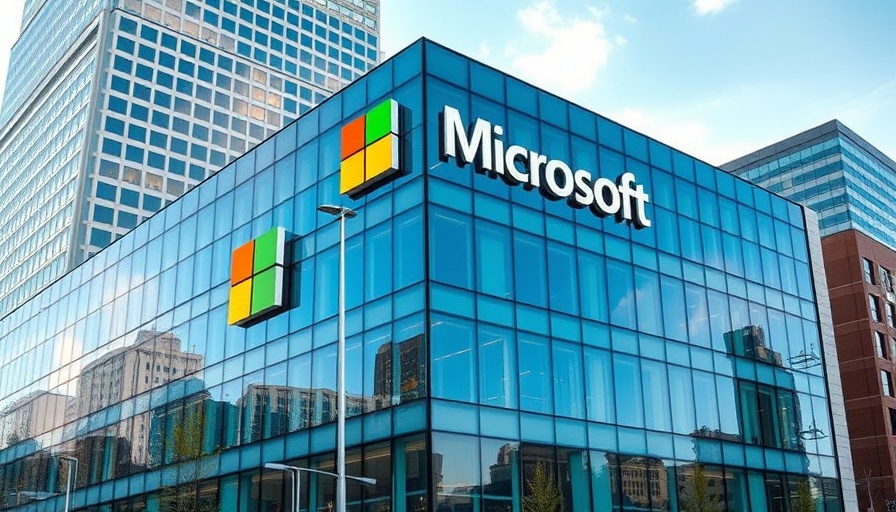
Revolutionizing Healthcare Workflows: Microsoft Dragon Copilot's Impact
Microsoft's latest innovation, Dragon Copilot, marks a significant leap forward in healthcare technology by integrating advanced AI capabilities tailored for clinical workflow. This first-ever unified voice AI assistant promises to reshape how clinicians engage with electronic health records (EHRs) and interact with patients, ultimately streamlining documentation and task automation. Aiming to alleviate clinician burnout—an issue exacerbated by administrative burdens—Dragon Copilot is positioned as an essential tool in promoting clinician well-being and enhancing patient experiences.
A Unifying Force: Features and Benefits
At its core, Dragon Copilot merges the speech recognition strengths of Dragon Medical One (DMO) with the ambient listening capabilities of DAX. Clinicians are given tools to document visits seamlessly, creating multi-language notes and automating key tasks like referral letters and after-visit summaries. This integration not only saves time—averaging five minutes per patient encounter—but also fosters a deeper connection between healthcare providers and their patients. With 93% of patients reporting a more personable experience, it's clear that the technology not only enhances efficiency but also improves care quality.
Understanding Chronic Clinician Burnout
With a staggering 48% of healthcare professionals experiencing burnout, as reported in recent studies, addressing this issue is essential. Microsoft’s Dragon Copilot aims to combat these feelings by enabling clinicians to focus more on patient interactions rather than clerical work. By automating repetitive tasks, Dragon Copilot helps to reduce feelings of fatigue significantly. This is a crucial development as healthcare systems face increasing pressure to maintain high-quality care amidst staffing shortages.
Ambitious Goals: The Future of Healthcare AI
As healthcare organizations continue to adopt AI technologies, the integration of Dragon Copilot represents a proactive approach to improving both clinician efficiency and patient outcomes. Microsoft’s commitment to a robust ecosystem of partners ensures that organizations will see tangible improvements not only in workflow efficiency but also in financial outcomes. This is particularly relevant in a time when advancing technology can alleviate many of the traditional pressures faced by healthcare providers.
Comparative Insights: How Does Dragon Copilot Stand Out?
In the ever-evolving landscape of AI in healthcare, Dragon Copilot stands apart due to its secure architecture and healthcare-specific safeguards. Other platforms may offer similar documentation tools, but Microsoft's emphasis on responsible AI and enhanced security addresses the critical need for trust in medical technologies. Moreover, the ability to deliver high-quality, specialty-specific notes through natural interactions represents a game-changing advancement in clinical documentation.
Key Takeaways: Why the AI Copilot Matters
For healthcare providers, understanding the implications of implementing Dragon Copilot—an AI designed not just for efficiency but also for the enhancement of provider-patient relationships—can result in unprecedented transformations in practice. The AI's capabilities facilitate better documentation and faster clinical insights, ultimately fostering healthier dynamics in healthcare environments.
 Add Row
Add Row  Add
Add 




 Add Row
Add Row  Add
Add 

Write A Comment